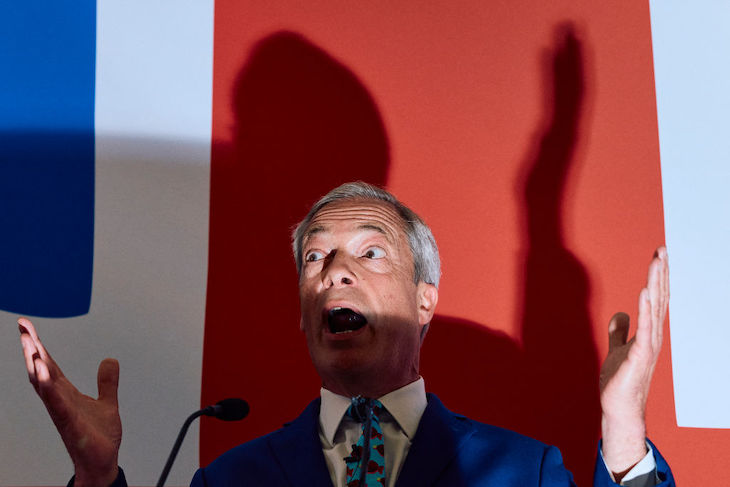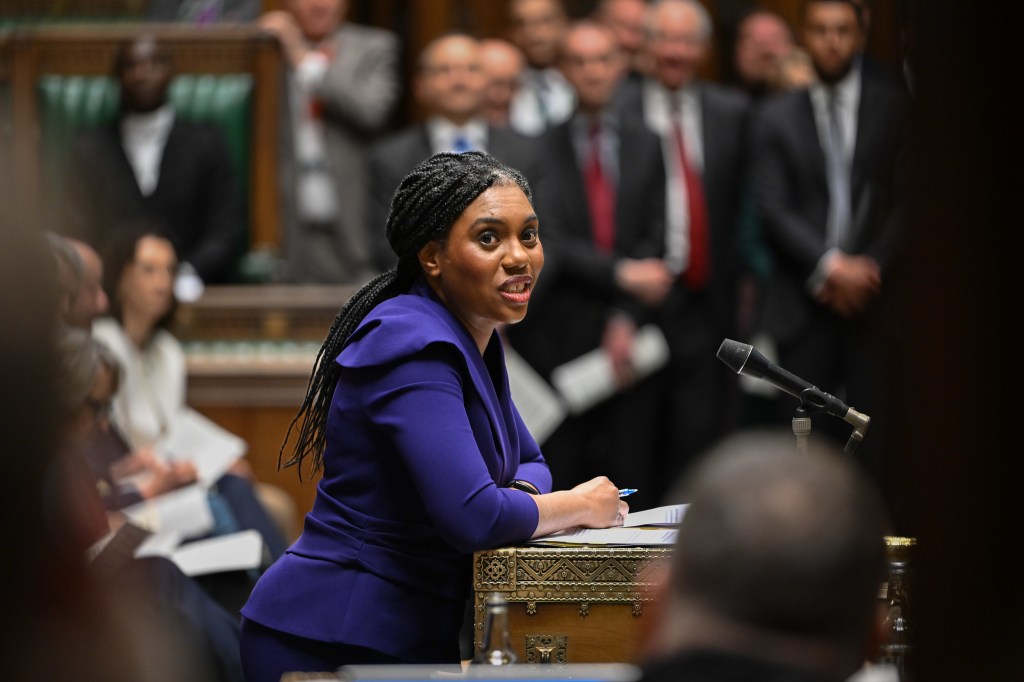Nigel Farage likes to see himself as a reliable pal, so it was very much in that spirit that Reform UK’s new leader said that he was endorsing two Democratic Unionist Party candidates, Ian Paisley Jr in North Antrim and Sammy Wilson in East Antrim. Both are DUP stalwarts. Both are very likely to be re-elected on 4 July. Farage’s endorsement rests on their support for him during the long years of fighting to achieve and secure the UK’s departure from the European Union. The only problem is that Reform UK had previously signed a formal ‘memorandum of understanding’ to support the candidates of their rivals, Traditional Unionist Voice (TUV) – the unionist party founded by former DUP politician Jim Allister.
Reform UK, like the Brexit party before it, is not in any meaningful sense like other parties
This pact was unveiled at TUV’s annual conference in March, which former Reform UK leader Richard Tice and deputy leader Ben Habib attended, and was presented as a major achievement.
Allister is somewhat dismayed at Farage’s endorsement of the two DUP candidates, which he discovered through the media. He called it ‘disappointing’, and said that he had entered into the arrangement with Reform UK ‘in good faith’. He had every reason to do so: Habib told the TUV conference in March that the two parties were ‘firmly hitched at the hip’. Allister added that Farage’s action was ‘not compatible with the content of a conversation I had with him last week’.
What does Reform UK say about this apparent snub? In a statement, the party claimed it was still ‘committed’ to the alliance with TUV:
‘Candidates will be standing under our joint logo throughout Northern Ireland. Nigel Farage was giving a personal view in respect of two DUP candidates with whom he has worked closely in the past, but he has not changed the policy and does not intend to do so.’
Ben Habib, Reform UK’s deputy leader, attempted to make sense out of nonsense by telling the BBC that this was a matter of two specific people who were ‘old beer buddies of Nigel’s’.
Sammy Wilson is, of course, teetotal, and Paisley’s father, who founded the DUP in 1971, condemned alcohol as ‘the Devil’s buttermilk’. Habib added: ‘The alliance with the TUV absolutely stands. We endorse every single TUV candidate.’
Farage himself is supremely unfazed by the row: ‘New leadership brings change. I wish the TUV well, but I’m gonna stand up to support Sammy Wilson and Ian Paisley as people I fought with all through the Brexit years.’
There is an irony here: the politics of Northern Ireland, and particularly that of hardline unionism, are steeped in the narrative of undertakings broken and betrayed, and agreements not being worth the paper they are written on. From Allister’s point of view, he made a solemn and serious commitment with Reform UK, and it has been cast aside without a thought at the whim of Nigel Farage. This is not a mere abstraction: Matthew Warwick is standing against Sammy Wilson in East Antrim while Allister himself is TUV’s candidate against Paisley in North Antrim.
Let that sink in: the leader of a party with which Jim Allister signed a formal memorandum of understanding to field joint candidates three months ago has endorsed his opponent in the constituency in which he, Allister, is seeking election. That must sting.
None of this should be surprising. Reform UK, like the Brexit party before it, is not in any meaningful sense like other parties. It is, it seems, a platform for the continuing political career of Nigel Paul Farage, newly announced as its leader but always its controlling force. Farage’s casual remark has left Reform UK in a truly absurd, literally nonsensical position: according to its deputy leader, it is endorsing every TUV candidate, but its own leader is endorsing two of TUV’s opponents, including a candidate standing against the leader of TUV.
Because Northern Ireland is a polity unto itself, complex and largely ignored by the rest of the United Kingdom, this will not do Farage or Reform UK much harm. It may not, in the end, have much bearing on TUV’s success or otherwise: it has never managed to become more than a fringe party, outraged and red-faced on the sidelines of Ulster politics. But what has unfolded speaks profoundly to Farage’s character and style. He has done what he wanted to do, and what it suited him to do, irrespective of any previous commitments. If Tice had made a solemn undertaking a few months ago, well, so what? That was before. The important factor is how Farage feels about Ian Paisley and Sammy Wilson, not some niminy-piminy matter of agreements or undertakings or commitments.
Nigel Farage is a one-man band, and he always has been. That is not to dismiss the level of his success: he will be remembered as one of the most influential British politicians of the early 21st century. But he adheres to his own lights and his own priorities. Jim Allister and Traditional Unionist Voice are merely the latest victims of that.
Join Fraser Nelson, Katy Balls and Kate Andrews for a post-election live recording of Coffee House Shots in Westminster, Thu 11 July. Bar opens 6.30pm, recording starts 7pm








Comments